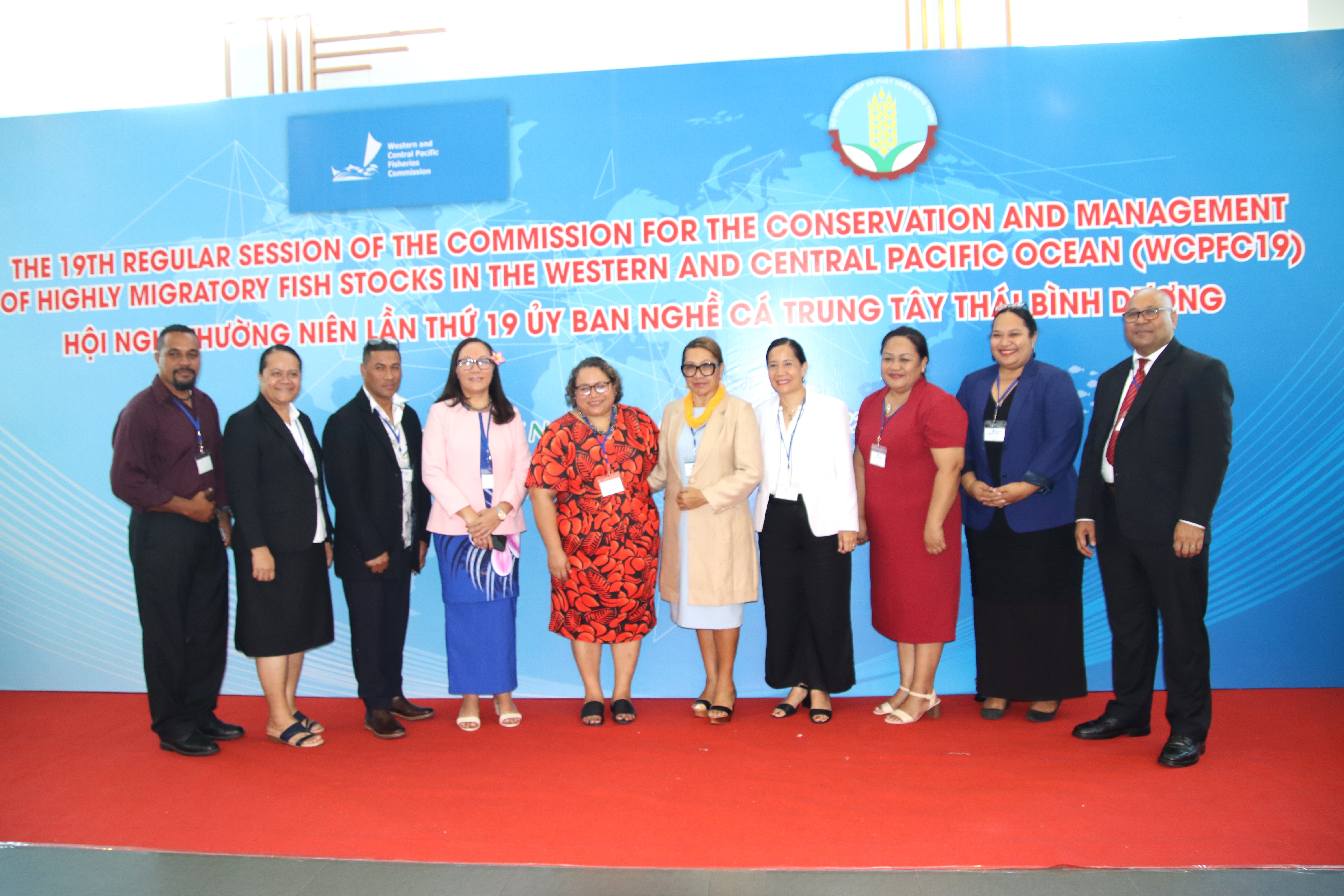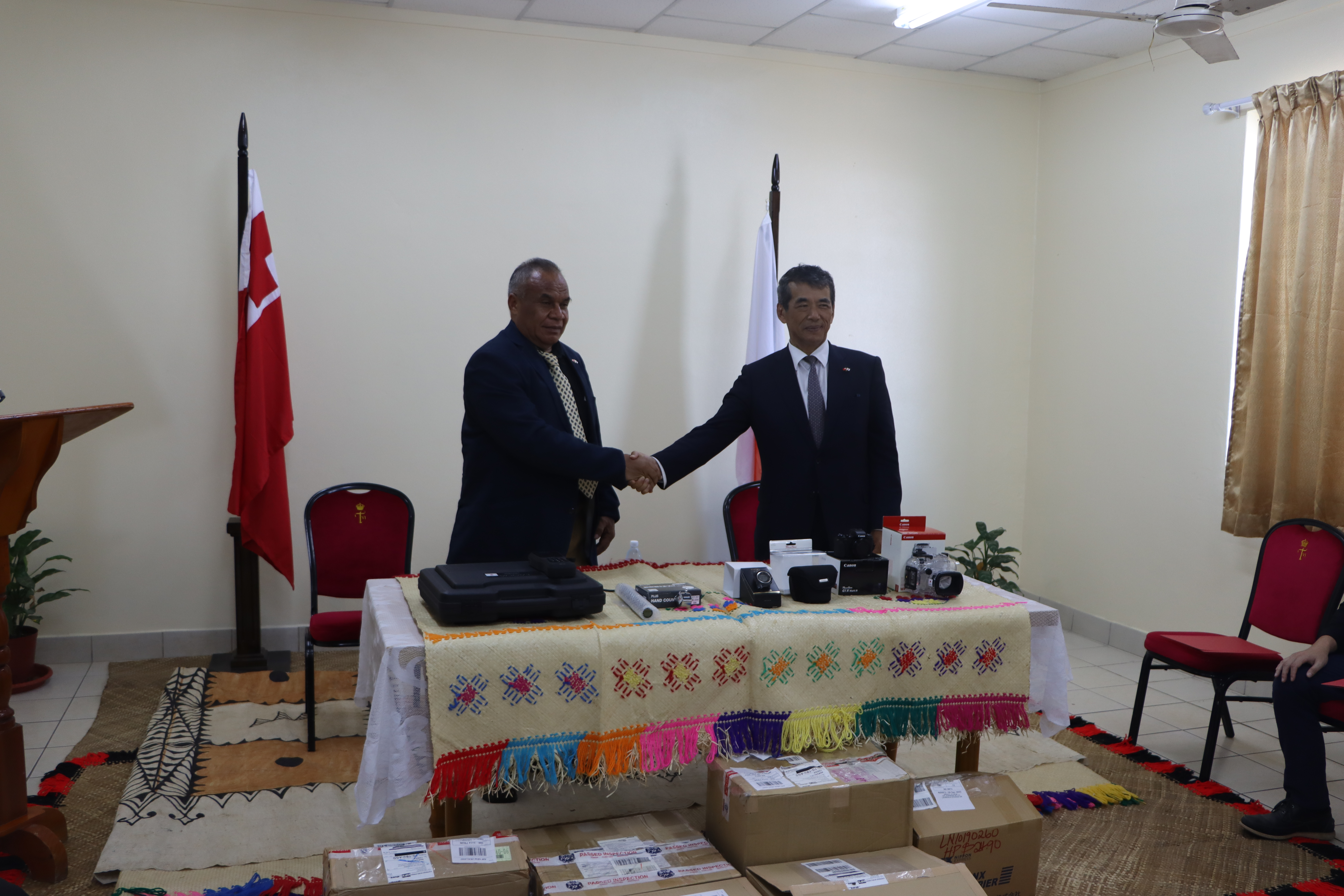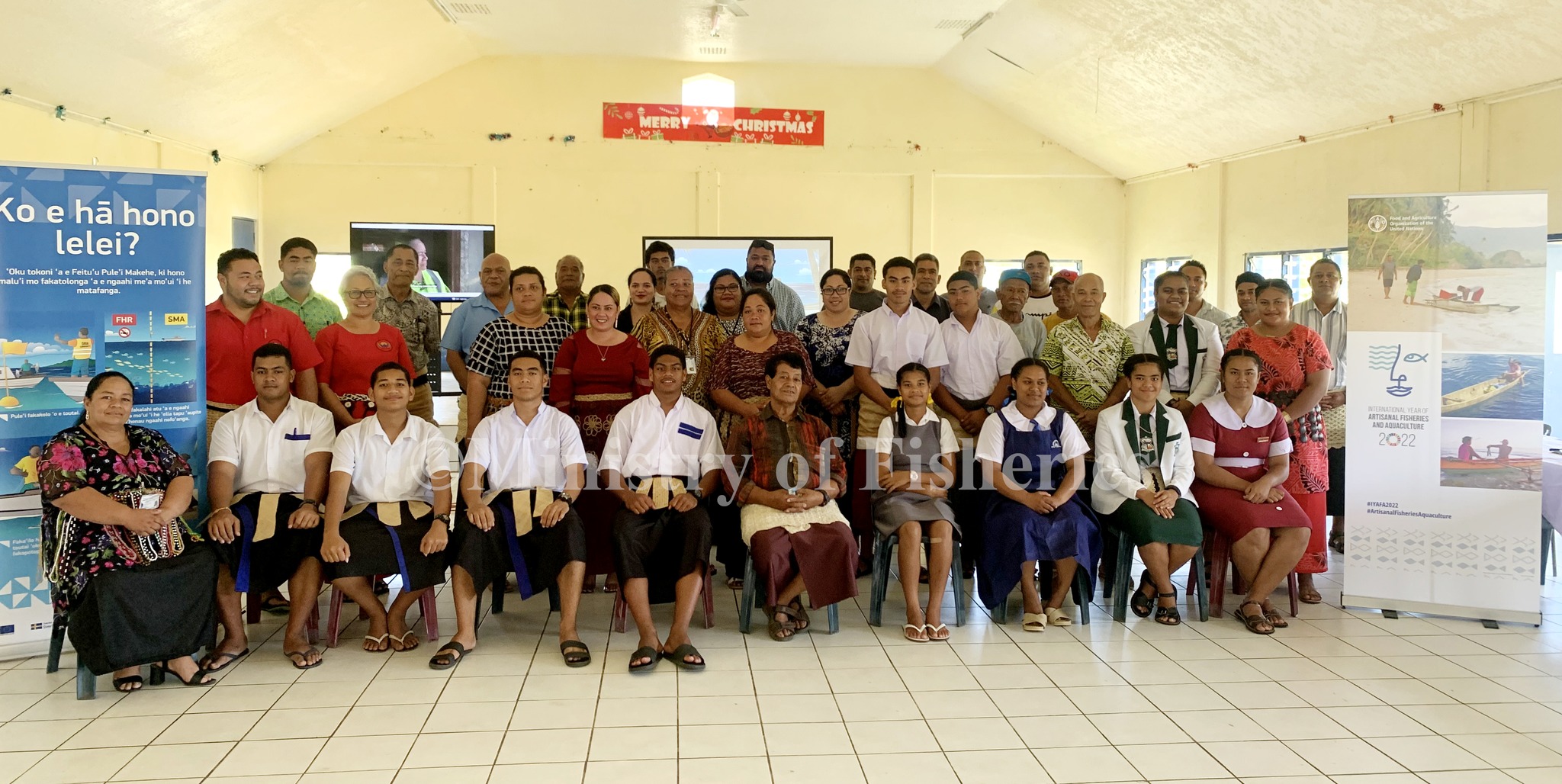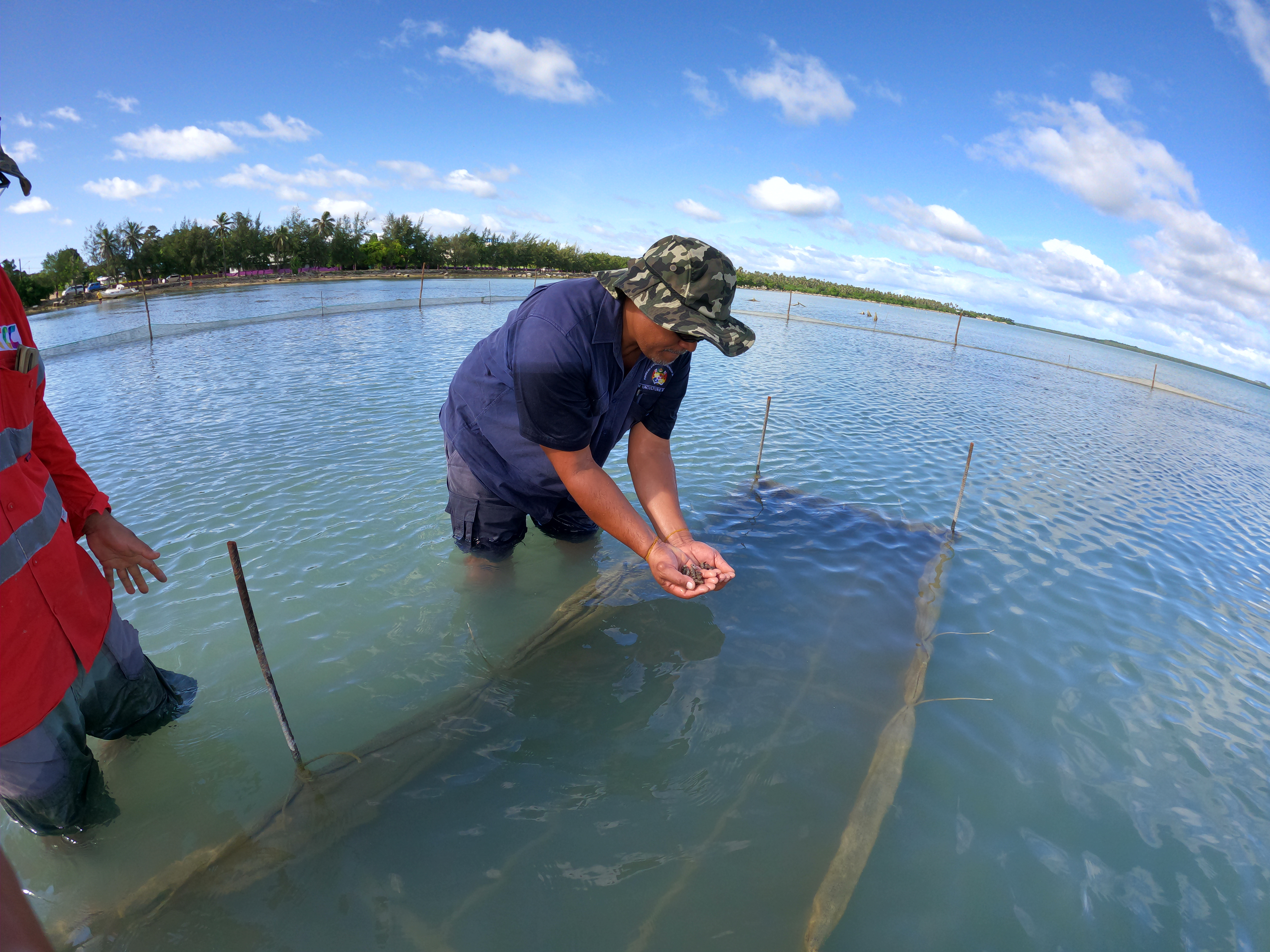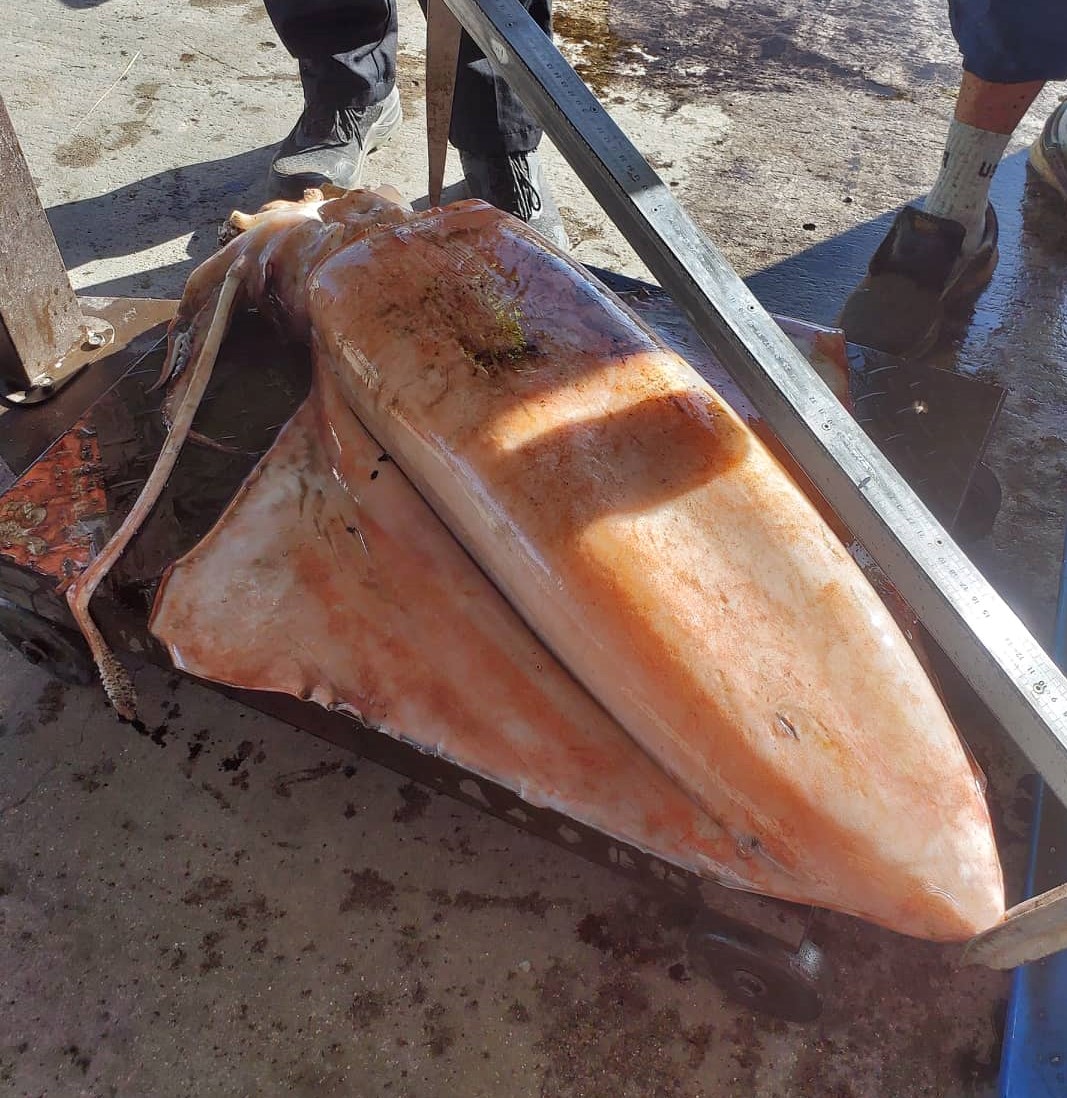A Month of Strong Progress for the Tongan Mabe Pearl Industry

Cultured pearls are the Pacific region’s most valuable and promising aquaculture commodity. They are an ideal trade and export commodity for island communities as pearls are high in value whilst being light-weight and non-perishable. Pearl culture is compatible with traditional lifestyles and provides opportunities for income generation at a number of levels. The industry is environmentally benign and helps to preserve marine environments by imparting a value and utilisation to these areas.
The Tongan pearl farming industry has chosen to differentiate itself from the other round pearl producing Pacific nations by producing the mabé, or "half" pearl. The mabé pearl is Tonga's only locally produced pearl and is grown in the "winged pearl oyster" (Pteria penguin). Mabé pearl production requires lower technical inputs and lower investment, with a lower level of associated financial risk and shorter production time. Furthermore, the entire production and crafting process can be completed using only local technicians and artisans.
In recognition of such potential benefits, the Australian Government has been working with the Kingdom of Tonga to develop a pearl farming industry. This work is part of an Australian Centre for International Agricultural Research (ACIAR) project being undertaken in collaboration with the Tongan Department of Fisheries. Currently Tonga's mabé pearl farming industry is still in its initial development stage, however the realisation of a number of different initiatives and outcomes in May 2016 confirms that the industry is consolidating and maturing. Some of the most significant of these developments include:
Tonga wide
- A 50% increase in the number of active pearl farms. There are now a total of 15 mabé pearl farms across Vava'u, Tongatapu and Ha'apai.
- The launch of a pearl design competition to be held in conjunction with the Royal Agricultural Fisheries and Tonga Made Show http://www.mctl.gov.to/
- Harvesting of the first mabé pearls from oysters spawned at the start of the current ACIAR project - spawned in 2013 (Photo 1).
- Significant staff movements include the the transfer of Siaosi Vi from the Ha'apai Fisheries office to the Sopu office and the arrival of Sophie Gordon, an Australian Volunteer for International Development, to begin her duties as Pearl Farming Production Facilitator.

Vava'u
- The first mabé pearl artisanal training workshop. The workshop focused on traditional Tongan design and achieved excellent artistic and training results (Photo 2).
- The installation of mabé pearl advertising billboards by MCL, featuring Miss Tonga (Photo 3).
- Planning has begun for a Pearl Farming Information Centre and Workshop, with Fisheries providing the building and both Fisheries and MCL contributing funds towards its refurbishment (Photo 4).
- Master Carver and pearl farmer, Leonati Fakatava, has agreed to assist in training and mentoring other pearl artisans to produce high quality mabé pearl products. Leonati's involvement delivers a substantial leap forward in the quality of Tongan mabé artisanal work (Photo 5).

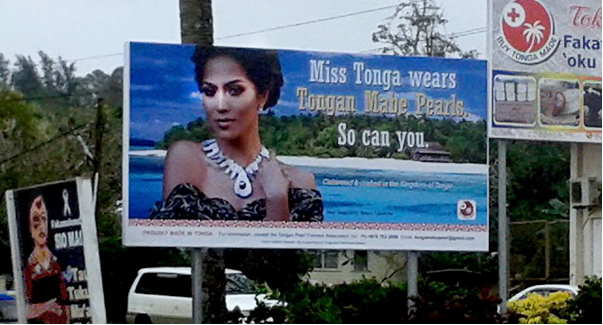

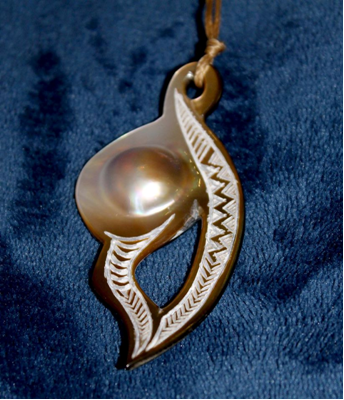
Ha'apai
- The establishment of Ha'apai's very first pearl farm, at the village of Falamea on the island of Uiha (Photo 6).
- The completion of the first pearl farming information session and training workshop in Ha'apai. This introductory workshop was very well attended, with the whole community expressing enthusiam about developing a pearl farming industry (Photo 7).
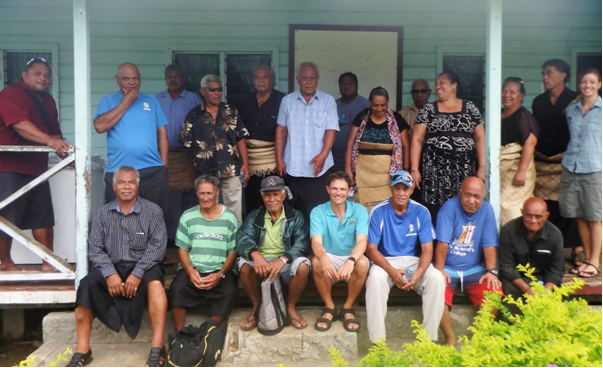
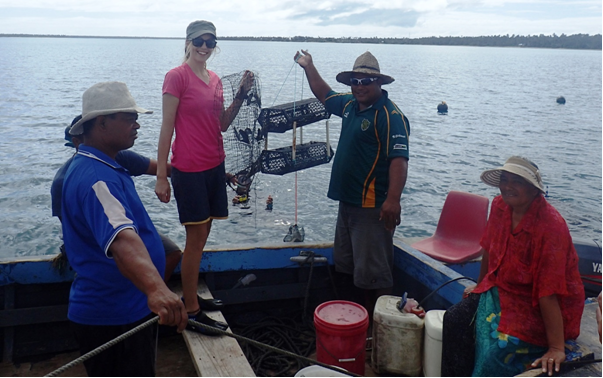
These excellent results are testament to the collaboration and dedicated efforts of the staff of the Ministry of Fisheries, Ministry of Commerce and Labour, the Tongan National Pearl Farmer's Association, New Zealand Volunteer Services Abroad, Australian Volunteers for International Development, the University of the Sunshine Coast and the Australian Centre for International Agricultural Research. It is clear that a number of different aspects of pearl industry development are now coming together to build an expanding, well-organised, profitable and sustainable pearl farming industry for the people of Tonga.
Tongan Mabe Pearl Handicraft and Jewellery Competition
The Department of Fisheries is pleased to be working together with the Ministry of Commerce and Labour to support the "Tongan Mabé Pearl Handicraft and Jewellery Competition". If you have some artistic or creative talent you may like to consider entering the competition. Not only would you be eligible for some of the generous competition prizes but you would also be helping to support the development of Tonga's new and existing pearl farming industry.

